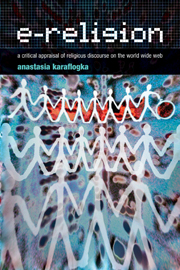Preface
Summary
The question of religion and its interaction with the Internet has only recently begun to be examined in a systematized way. For example, Wertheim (1999) suggests an understanding of cyberspace as a sacred space; Cobb (1998) considers the question of spiritual life in cyberspace; Davis (1998) addresses the mystical aspect of information communication technologies (ICTs); Bunt Brasher (2001) examines both the meaning of cyber-faith and the future of traditional religion. A broader view of issues regarding religion and the Internet is offered in the edited collection of Hadden and Cowan (2000).
The primary concern of this thesis is to contribute to the current research regarding the presence of religions in cyberspace, indicating the necessity for a paradigm shift in scholarly approaches to cyber-spatial religious discourse. One of the aims of this paradigm shift is to develop at least a basic understanding of the “field's” ontology, by incorporating web epistemology and theory as integral to the study of cyberreligion in order to generate conceptual change and renewal.
Yet, any academic inquiry into a given subject requires a set of tools which would provide the necessary framework upon which the investigation will be based. Equally, regarding the exploration of the notion of religion and its relationship with ICTs, a specific collection of methodological devices is requisite.
Therefore, adding to the existing works, the scope of this thesis is to provide a critical methodological framework.
- Type
- Chapter
- Information
- E-ReligionA Critical Appraisal of Religious Discourse on the World Wide Web, pp. ixPublisher: Acumen PublishingPrint publication year: 2007

